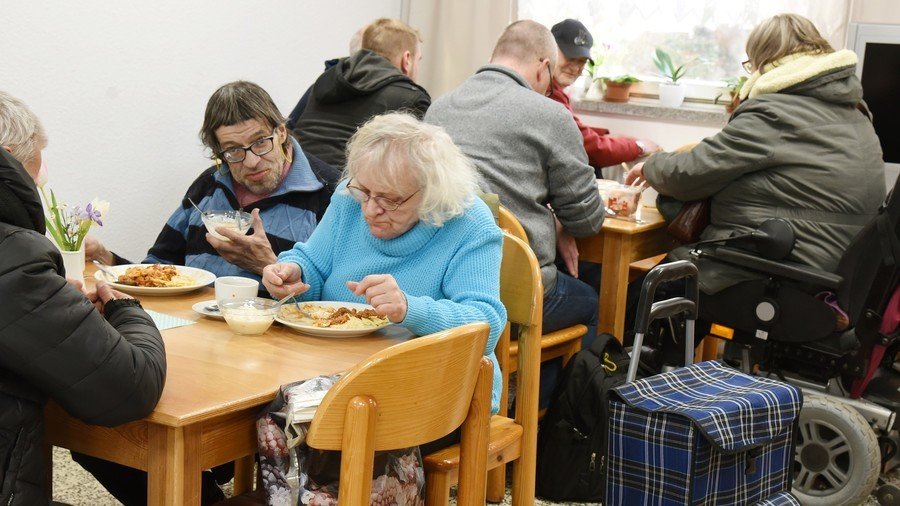Almost 1 in 5 Germans is ‘at risk of poverty’ despite record employment – study

Germany may be Europe’s biggest and strongest economy and is enjoying record employment, but one fifth of its citizens are struggling to make ends meet, a new study reveals.
Some 15.5 million people or 19 percent of the population in Germany were “at risk of poverty” or “social exclusion” in 2017, the Federal Statistics Office said.
Even though the unemployment rate in Germany has fallen to record lows, many people still do not earn enough to pay their bills and keep themselves above the poverty line. Some 13.1 million Germans, roughly 16.1 percent of the population, are threatened by poverty precisely because of their low monthly income, the federal statistics bureau says.
According to the criteria introduced in the EU, people are considered to be at risk of poverty if their total income amounts to less than 60 percent of an average income in their country. In the case of Germany, it amounts to €1,096 ($1,243) for a single person per month and €2,302 ($2,611) for a family of two adults and two children under 14.
3.4 percent of the population were considered as threatened by poverty as they struggled to pay their rent on time, heat their homes adequately, travel on vacation or even to regularly get a substantial meal due to a lack of financial resources.
Another 8.7 percent of Germans lived in households with a very low labor force participation, which means that most or all working age family members in such households either worked just for a few months last year or did not work at all and had to live on social benefits.
Even though the general situation had slightly improved compared to 2016, the total number of people threatened by poverty decreased by mere 0.7 percent in 2017, the study shows. This data provoked a wave of criticism from activists and opposition lawmakers.
“That is just scandalous that 15.5 people are threatened by poverty or [social] exclusion despite the economic boom,” Verena Bentele, the head of the social welfare association VdK Germany, told local media. She also called on the authorities to provide “fair educational opportunities” and develop “a new strategy for labor market policy” to combat poverty.
‘High poverty, deep disunity’: German wage inequality hits historic high
Meanwhile, Dietmar Bartsch, the leader of the parliamentary faction of the Left Party in the Bundestag, openly blamed Chancellor Angela Merkel’s government for the poor situation in the poverty statistics of Germany.
“The systematic impoverishment of an ever larger part of our society is also part of Merkel's political legacy,” he wrote in a Twitter post, calling it an evidence of Merkel’s “bankruptcy of ability.”
Like this story? Share it with a friend!















